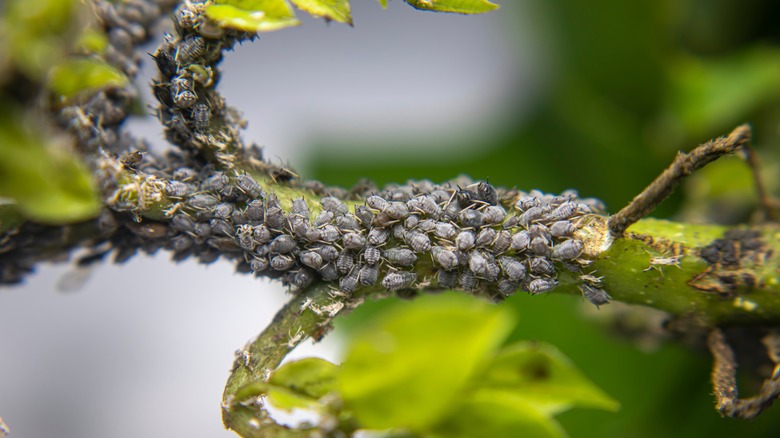Two best friends taking on bad guys together may be an excellent movie trope, but you can mimic that right in your own yard. Dill and cilantro are two delicious herbs that elevate your cuisine and make great companion plants in the garden. They are kindred plants that both belong to the carrot family. Cilantro and dill also have an indirect hand in deterring pests. If you’re in the market for herbs that can provide great flavors in your home cooking while helping to chase pests away in the garden, planting cilantro and dill should be at the top of your to-do list.
What makes dill and cilantro such a powerhouse duo when it comes to controlling garden pests is that they attract good insects to your garden. These beneficial insects are common enemies of many common garden pests and will help drive them away and reduce their population. Examples of beneficial insects that dill and cilantro plants will draw in are lacewing flies, ladybugs, hoverflies, and parasitoid wasps. These critters love the blooms from these beloved culinary herbs because they can feed from their flowers. By knowing which insects are likely to be the most beneficial, you can be sure that adding cilantro or dill to your garden will be worth it.
The beneficial insect effect of cilantro and dill

Growing dill and cilantro plants in your garden can help you get a hold of your pest problem, but you have to get acquainted with your pest first to know its natural enemies. Lacewing flies and ladybugs are some of the best beneficial insects you will ever introduce to your garden because you don’t ever have to worry about them posing a threat to you, your kids, or your pets. These insects don’t bite or sting; instead, they chow down on harmful piercing-and-sucking pests such as aphids, whiteflies, and scale insects, which literally suck the life out of your plants by draining them of the nutrients in their sap. They are also some of the more common garden pests, affecting a wide range of fruit, herbs, and trees. Ladybugs and lacewing flies prey on these pests at all life cycle stages and even eat their eggs.
Wasps are not exactly anyone’s idea of a friend to the people, especially considering that many of us have cautionary tales about painful stings at some point in our lives. However, the stinging wasps comprise only a small percentage of the entire wasp population. Most wasps won’t hurt you, but they will definitely hurt pests like aphids and caterpillars. Parasitic wasps even lay eggs inside host insects. And with dill and cilantro growing together, you can attract even more of these beneficial wasps and other insects.
Other benefits to growing dill and cilantro together
Dill and cilantro are true team players in the garden because, in addition to managing pests, the beneficial insects that draw to your yard are expert pollinators. Wasps are incredibly proficient in pollination since the adults feed solely on nectar. Ladybugs and whiteflies flutter from plant to plant in search of food and pick up pollen as they go. They deposit the yellow powder in other flowers in their quest. When planting them together, make sure the dill and cilantro plants are spaced at least 12 inches apart. Both plants love growing in full sun and moist, well-drained soil. Their water requirements are similar, so you don’t need to fret over their irrigation schedule. Watering the plants one to two times per week will do.
Growing dill and cilantro as biological pest control is the way to go if you don’t want to use pesticides to banish harmful critters from your garden. There are eco-friendly ways to keep bugs out of your garden. Pesticides don’t discriminate — they will get rid of the pests in your yard, but they will kill off the beneficial insects as well, and you don’t want that.